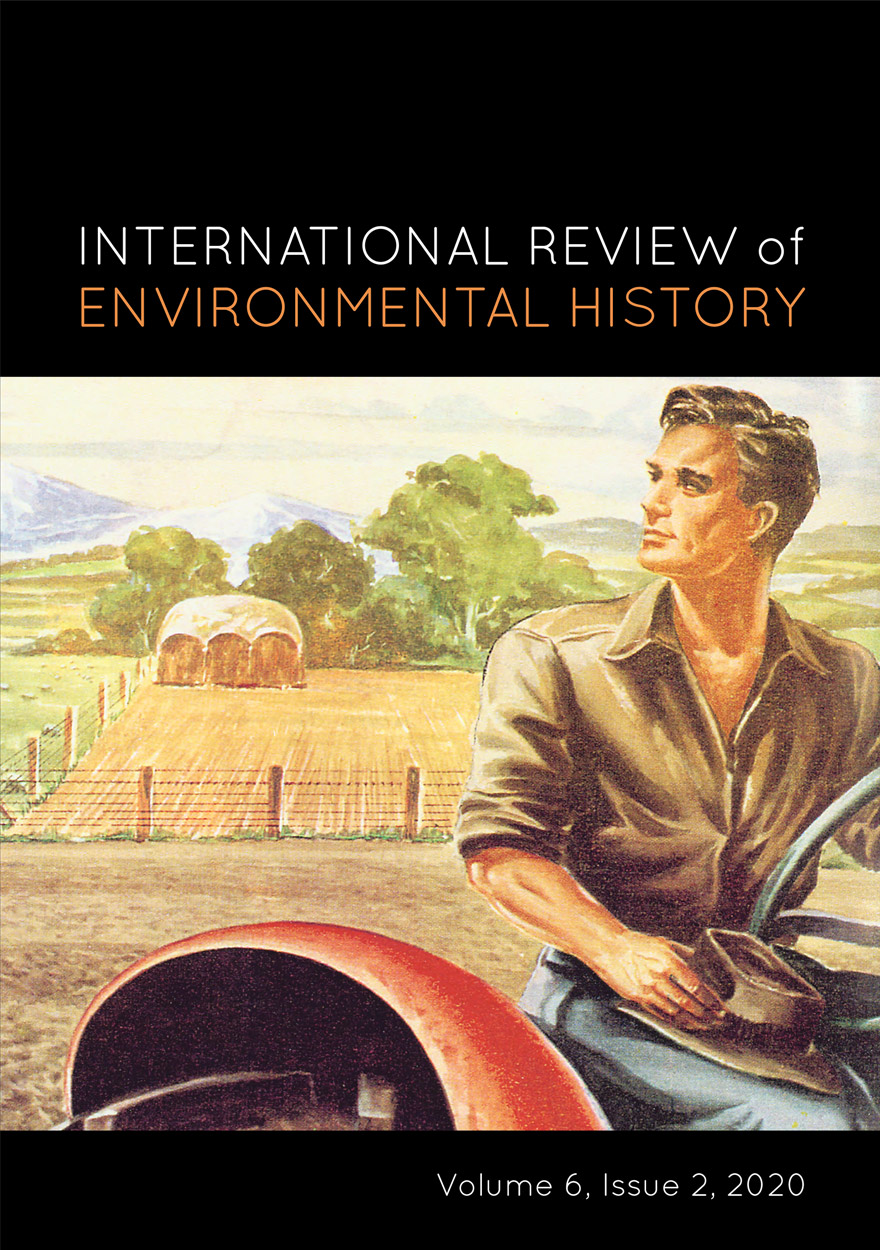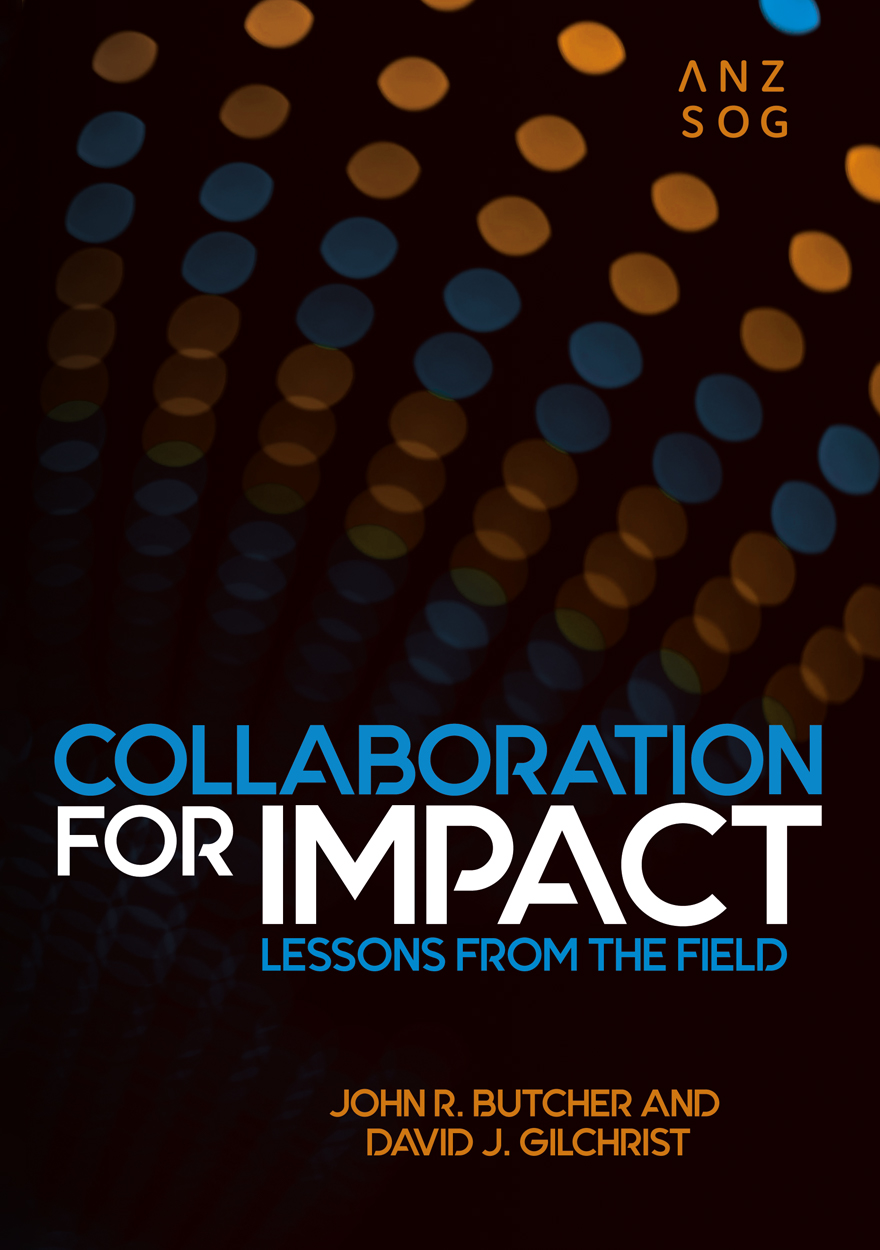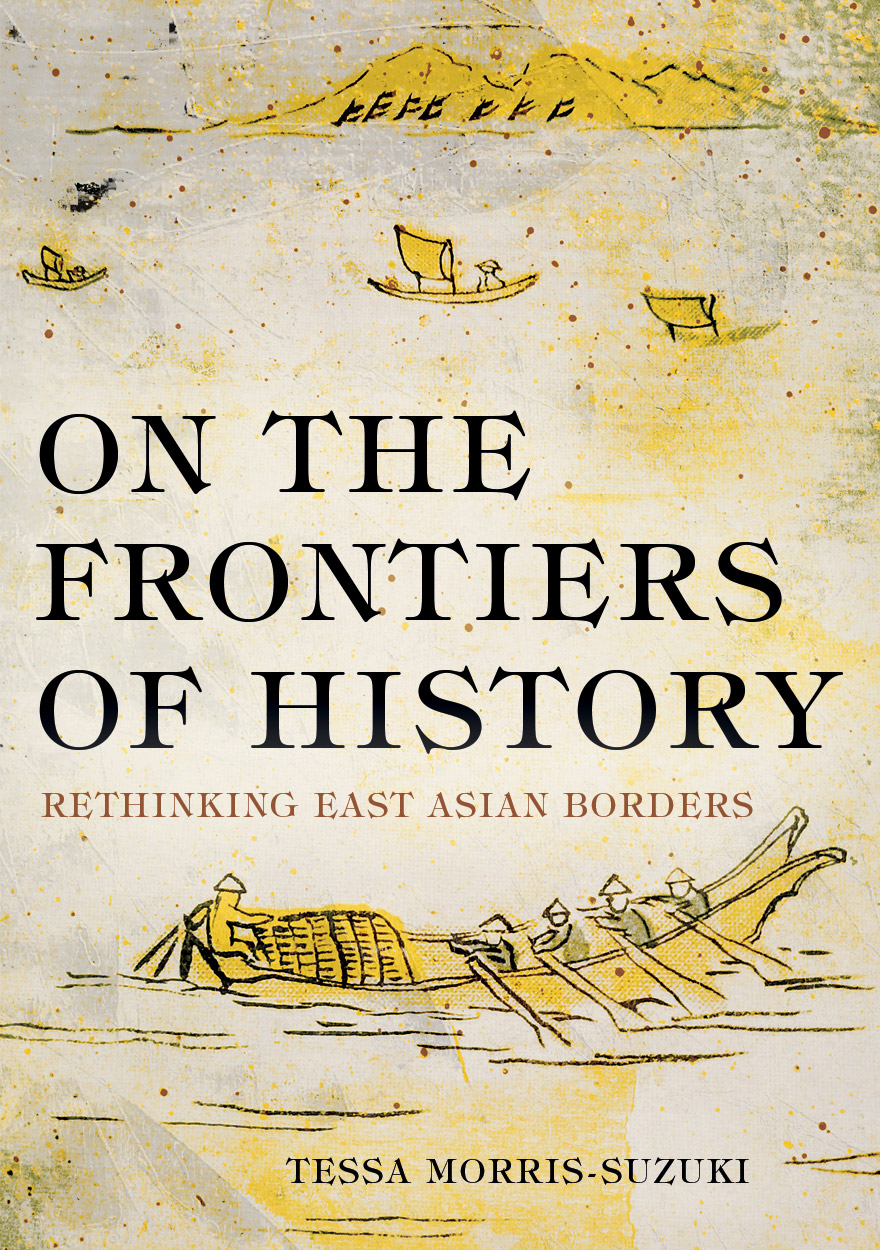Search titles
Displaying results 71 to 80 of 376.

Interpreting Myanmar »
A Decade of Analysis
Authored by: Andrew Selth
Publication date: December 2020
Since the abortive 1988 pro-democracy uprising, Myanmar (formerly Burma) has attracted increased attention from a wide range of observers. Yet, despite all the statements, publications and documentary films made about the country over the past 32 years, it is still little known and poorly understood. It remains the subject of many myths, mysteries and misconceptions. Between 2008 and 2019, Andrew Selth clarified and explained contemporary developments in Myanmar on the Lowy Institute’s internationally acclaimed blog, The Interpreter. This collection of his 97 articles provides a fascinating and informative record of that critical period, and helps to explain many issues that remain relevant today.

International Review of Environmental History: Volume 6, Issue 2, 2020 »
Edited by: James Beattie
Publication date: November 2020
International Review of Environmental History takes an interdisciplinary and global approach to environmental history. It encourages scholars to think big and to tackle the challenges of writing environmental histories across different methodologies, nations, and time-scales. The journal embraces interdisciplinary, comparative and transnational methods, while still recognising the importance of locality in understanding these global processes.
The journal's goal is to be read across disciplines, not just within history. It publishes on all thematic and geographic topics of environmental history, but especially encourage articles with perspectives focused on or developed from the southern hemisphere and the ‘global south’.
Download for free
Not available for purchase

Made in China Journal: Volume 5, Issue 2, 2020 »
Edited by: Ivan Franceschini, Nicholas Loubere
Publication date: October 2020
The most Gothic description of Capital is also the most accurate. Capital is an abstract parasite, an insatiable vampire and zombie-maker; but the living flesh it converts into dead labor is ours, and the zombies it makes are us. There is a sense in which it simply is the case that the political elite are our servants; the miserable service they provide for us is to launder our libidos, to obligingly re-present for us our disavowed desires as if they had nothing to do with us.
– Mark Fisher, Capitalist Realism (2009)
Ghostly analogies drawn from the gothic imaginary are common in the Marxist canon, with the most famous case in point being the incipit of Marx and Engels’s Manifesto of the Communist Party, where readers are told that ‘the spectre of communism’ is haunting Europe. Far from being considered curious aberrations, these preternatural metaphors have given rise to a whole literature on spectral capitalism that spans to our present stage of late capitalism. In the 1980s, Aihwa Ong made waves with her study of spirit possessions on the shop floors of modern factories in Malaysia, in which she argued that these spectres represented a form of resistance by workers otherwise powerless in the face of capital. In another instance from the 1990s, Jean and John Comaroff introduced the idea of ‘occult economies’ to make sense of the wave of episodes in which real or imagined magical means were deployed in pursuit of material gains that occurred in South Africa after the end of apartheid. While both conceptualisations received a fair share of criticism—not least for presenting the ghosts of capitalism as dreams and the anthropologist as the psychoanalyst instead of dealing with the proper social and historical context of these phenomena—this issue of the Made in China Journal cuts the Gordian knot by focusing on how individuals in China and other contexts in Asia live and interact with the supernatural. In some cases, ghosts, fortune-tellers, shamans, sorcerers, zombies, corpse brides and aliens merely assist people to get by and cope with the difficulties they face in their daily lives; in others, these beings play subversive roles, undermining the rules that underpin contemporary society. In both cases, they challenge the status quo, hence the title ‘spectral revolutions’.
Download for free
Not available for purchase

Collaboration for Impact »
Lessons from the Field
Authored by: John Butcher, David Gilchrist
Publication date: September 2020
Collaboration is often seen as a palliative for the many wicked problems challenging our communities. These problems affect some of the most vulnerable and unempowered people in our community. They also carry significant implications for policy processes, programs of service and, ultimately, the budgets and resourcing of national and sub-national governments.
The road to collaboration is paved with good intentions. But, as John Butcher and David Gilchrist reveal, ‘good intentions’ are not enough to ensure well-designed, effective and sustainable collaborative action. Contemporary policy-makers and policy practitioners agree that ‘wicked’ problems in public policy require collaborative approaches, especially when those problems straddle sectoral, institutional, organisational and jurisdictional boundaries.
The authors set out to uncover the core ingredients of good collaboration practice by talking directly to the very people that are engaged in collaborative action. This book applies the insights drawn from conversations with those engaged in collaborations for social purpose—including chief executives, senior managers and frontline workers—to the collaboration challenge. Backed up by an extensive review of the collaboration literature, Butcher and Gilchrist translate their observations into concrete guidance for collaborative practice. The unique value in this book is the authors’ combination of scholarly work with practical suggestions for current and prospective collaborators.

‘We Are All Here to Stay’ »
Citizenship, Sovereignty and the UN Declaration on the Rights of Indigenous Peoples
Authored by: Dominic O’Sullivan
Publication date: September 2020
In 2007, 144 UN member states voted to adopt a Declaration on the Rights of Indigenous Peoples. Australia, Canada, New Zealand and the US were the only members to vote against it. Each eventually changed its position. This book explains why and examines what the Declaration could mean for sovereignty, citizenship and democracy in liberal societies such as these. It takes Canadian Chief Justice Lamer’s remark that ‘we are all here to stay’ to mean that indigenous peoples are ‘here to stay’ as indigenous.
The book examines indigenous and state critiques of the Declaration but argues that, ultimately, it is an instrument of significant transformative potential showing how state sovereignty need not be a power that is exercised over and above indigenous peoples. Nor is it reasonably a power that displaces indigenous nations’ authority over their own affairs. The Declaration shows how and why, and this book argues that in doing so, it supports more inclusive ways of thinking about how citizenship and democracy may work better. The book draws on the Declaration to imagine what non-colonial political relationships could look like in liberal societies.

East Asia Forum Quarterly: Volume 12, Number 3, 2020 »
Publication date: September 2020
Japan's choices will be consequential — potentially pivotal — as the world moves through an inflection point in history. The United states and China are locking into strategic rivalry, with both countries dealing poorly with transition to a more multipolar order. How the rest of the world responds will determine global security, prosperity and stability for decades to come.
This issue examines how Japan will navigate the policy challenges associated with a post-COVID and post-Abe world. Our contributors offer a variety of perspectives on Japan’s global leadership role, domestic politics, health governance, diplomatic strategy and economic recovery. Our Asian Review pieces examine the domestic drivers of India’s foreign policy and the shaping of politics in China.
Download for free
Not available for purchase

Bridging Australia and Japan: Volume 2 »
The writings of David Sissons, historian and political scientist
Edited by: Keiko Tamura, Arthur Stockwin
Publication date: August 2020
This book is volume two of the writings of David Sissons, who first established his academic career as a political scientist specialising in Japanese politics, and later shifted his focus to the history of Australia–Japan relations. In this volume, we reproduce his writings on Japanese politics, the Pacific War and Australian war crimes trials after the war. He was a pioneer in these fields, carrying out research across cultural and language borders, and influenced numerous researchers who followed in his footsteps. Much of what he wrote, however, remained unpublished at the time of his death in 2006, and so the editors have included a selection of his hitherto unpublished work along with some of his published writings.
Breaking Japanese Diplomatic Codes, edited by Desmond Ball and Keiko Tamura, was published in 2013, and the first volume of Bridging Australia and Japan was published in 2016. This book completes this series, which reproduces many of David Sissons’ writings. The current volume covers a wide range of topics, from Japanese wartime intentions towards Australia, the Cowra Breakout, and Sissons’ early writings on Japanese politics. Republished in this volume is his comprehensive essay on the Australian war crimes trials, which influenced the field of military justice research. Georgina Fitzpatrick and Keiko Tamura have also contributed essays reflecting on his research.
Sissons was an extraordinarily meticulous researcher, leaving no stone unturned in his search for accuracy and completeness of understanding, and should be considered one of Australia’s major historians. His writings deal not only with diplomatic negotiations and decision-making, but also the lives of ordinary and often nameless people and their engagements with their host society. His warm humanity in recording ordinary people’s lives as well as his balanced examination of historical incidents and issues from both Australian and Japanese perspectives are hallmarks of his scholarship.

On the Frontiers of History »
Rethinking East Asian Borders
Authored by: Tessa Morris-Suzuki
Publication date: August 2020
Why is it that we so readily accept the boundary lines drawn around nations or around regions like ‘Asia’ as though they were natural and self-evident, when in fact they are so mutable and often so very arbitrary? What happens to people not only when the borders they seek to cross become heavily guarded, but also when new borders are drawn straight through the middle of their lives? The essays in this book address these questions by starting from small places on the borderlands of East Asia and looking outwards from the small towards the large, asking what these ‘minor pasts’ tell us about the grand narratives of history. In the process, it takes the reader on a journey from Renaissance European visions of ‘Tartary’, through nineteenth-century racial theorising, imperial cartography and indigenous experiences of modernity, to contemporary debates about Big History in an age of environmental crisis.

Achieving Inclusive Growth in the Asia Pacific »
Edited by: Adam Triggs, Shujiro Urata
Publication date: August 2020
The world’s developed economies are experiencing a sharp backlash against globalisation, and it appears to be contagious. Will Asia catch it next? Asia has seen spectacular growth in recent decades. It has benefited substantially from global trade, finance, openness and the rules-based international order. But much of the growth Asia has enjoyed has not been shared. It has not been inclusive growth. Inequality in Asia is among the highest in the world. The richest man in Vietnam now earns more in a single day than the poorest person does in a decade. Asia has far to go in making its societies more inclusive to women, ethnic minorities and the LGBT community. How can Asia reduce inequality? What are the forces that determine whether growth in the Asia Pacific is inclusive or not? And what can be done to make Asia’s growth more inclusive in the future? This book brings together the region’s leading thinkers to explore how to change Asia’s trajectory, before it is too late.
The Pacific Trade and Development (PAFTAD) conference series has been at the forefront of analysing challenges facing the economies of East Asia and the Pacific since its first meeting in Tokyo in January 1968.

A Populist Exception? »
The 2017 New Zealand General Election
Edited by: Jack Vowles, Jennifer Curtin
Publication date: August 2020
The ‘spectre of populism’ might be an apt description for what is happening in different parts of the world, but does it apply to New Zealand? Immediately after New Zealand’s 2017 general election, populist party New Zealand First gained a pivotal role in a coalition with the Labour Party, leading some international observers to suggest it represented a populist capture of the government. The leader of New Zealand First, Winston Peters, justified his support for Labour as necessary to allow capitalism to ‘regain … its human face’. The new prime minister, Jacinda Ardern, spoke of a kinder, inclusive politics.
This book draws on the 2017 New Zealand Election Study to uncover New Zealanders’ political attitudes and preferences post-election. Its authors ask: is New Zealand now A Populist Exception? Through detailed empirical analyses of how populism and authoritarianism affected vote choice, opinions about immigration, satisfaction with democracy and the relevance of gender and indigeneity to these issues, this book finds that New Zealand politics today does not reflect the international trend toward ideological polarisation and electoral volatility. The authors argue that inclusive forms of populism can be pluralist if a leader’s rhetorical approach recognises ‘the people’ as diverse and encompassing. A Populist Exception? concludes that although populism has long been a strong current in New Zealand history, contemporary New Zealand exhibits a moderate form of populism, with liberal and pluralist values in balance with a strong commitment to majoritarian democracy.



